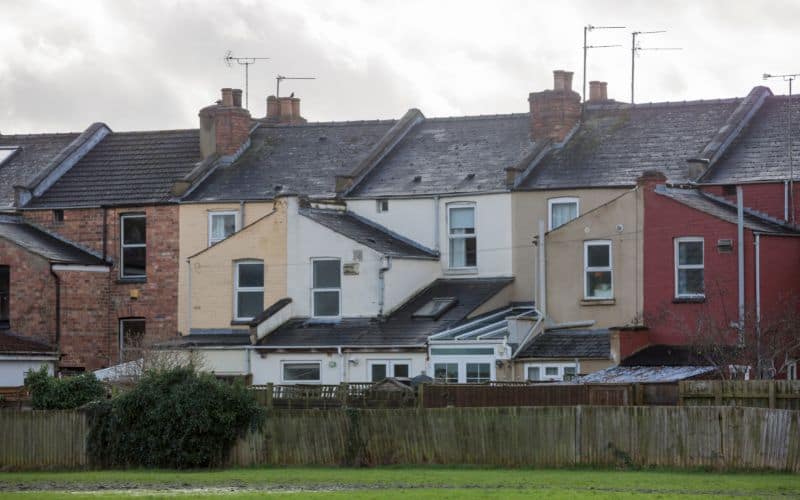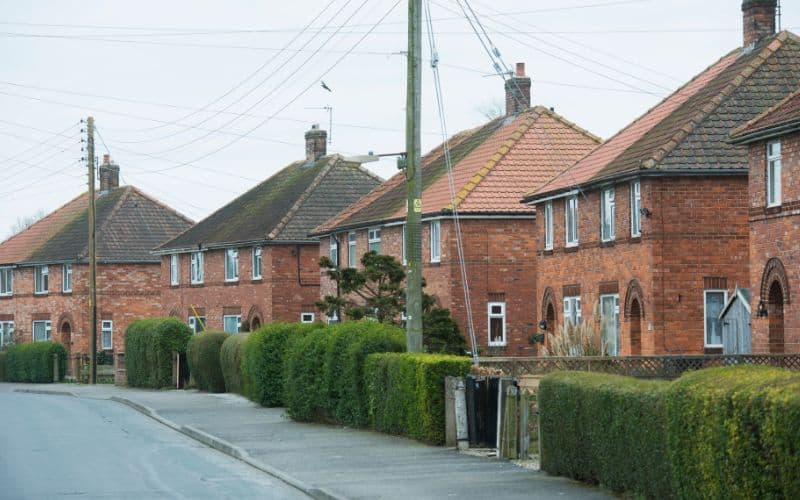Council houses are the government’s answer to the housing crisis, and they are public accommodations built by the local authorities.
They are usually found in council estates which are made up of multiple council houses and other helpful amenities such as shops and schools.

Council houses tend to be cheaper for the inhabitant and therefore are popular within the UK.
They offer affordable housing to more people, but how affordable is affordable? Do you have to pay at all? Let’s find out.
Contents
Will You Pay For A Council House?
Yes, you will still have to pay for a council house. You will need to pay rent on your house, although this amount will be lower than you would usually pay with a private landlord.
Council houses are then looked after by the council and you do not have to pay for any repairs or maintenance.
Council houses will pay for themselves through the rent, so you will be paying the same overall cost, just over a higher number of years.
Many people think that housing benefit will be enough to cover the rent and therefore your council house will be free, but this is not the case.
The housing benefit can be claimed by people who live in any kind of housing, whether that be private or owned by the council.
How Much Will You Pay For An Average Council House?
The price of a council house will vary greatly depending on a number of factors, such as the area in which you’re living in, the type of accommodation, and the size of the house.
However, we have found the average prices of each type of council house so you can get a better idea of what you might be paying.
Flats And Maisonettes (Per Week)
- Bedsit – £56.53
- 1-bed – £65.72
- 2-bed – £74.89
- 3-bed – £84.08
- 4-bed – £93.25
- 5-bed – £102.42
Bungalow Or House (Per Week)
- Bedsit – £61.42
- 1-bed – £70.61
- 2-bed – £79.78
- 3-bed – £88.96
- 4-bed – £98.13
- 5-bed – £107.31
There are larger properties built by the council that will have higher rent prices, so if you’re looking at a home with more than five bedrooms then expect the rent to be higher.
How Much Do You Get Through Housing Benefit?
Housing benefit is a government scheme that aims to help people in need by covering the cost of some of their rent and utility bills.
You can get housing benefits if you are either over the state pension age or you are in supporters, temporary, or sheltered accommodation.
Housing benefit is only for the most in need and therefore there are a number of exceptions as to why you would not be able to get this.
However, if you are living in a council home then you are more likely to be able to qualify for this benefit.
The amount of money you will get from your housing benefit depends on your personal case.
Some will get more money while others will get less. You may be entitled to all or part of your rent covered.
How much you can get through this benefit will depend on a number of factors, which we will look at below.
Bear in mind that this only applies to people living in council or social housing rather than private renting.
Eligible Rent

This is how much you use to calculate your housing benefit claim.
It is your actual rent figure plus any other service charges you pay, such as communal laundry. This does not include other bills such as gas or water.
Unclaimed Bedrooms
If you have a spare room, then your housing benefit might be decreased.
One spare room will reduce your eligible rent by 14%, and two spare rooms will reduce the eligible rent by 25%.
This reduced eligible rent will then be used to calculate your housing benefit allowance.
Your Circumstances
Your housing allowance will also be determined by considering your household income, including other benefits, savings, and pensions.
Your personal situation will also be considered, such as the disabilities and ages of all people who live there.
How Much Will I Get?
The most amount of money you can get through housing benefits is the maximum amount of rent you have to pay.
However, it is very uncommon for housing benefits to cover your entire rent, and will more often only cover some of it.
Are You Eligible For A Council House?
Every council has its own set of rules to decide who can apply for a council house, so it’s best to check on their individual website.
However, most will require you to:
- Live in one area for a number of years or have a family or job in that area, otherwise known as a local connection.
- Be living on a low income and have an amount of savings under the maximum amount.
Again, every council has its own requirements for council housing, and some might not require a local connection from you.
However, you should check the local council’s website before moving somewhere new to determine whether you suit the requirements or not.
There may also be additional rules that you need to follow depending on your nationality, such as being a citizen of the EU, Switzerland, or EEA.
If you are eligible for council housing, you will then be put on a waiting list. This works by having some people prioritised ahead of others.
For example, legally homeless people will be prioritised over someone who is living in suitable accommodation.
Summary
And there we have it – council housing is not free, although the rent is cheaper than if you were to be living in private accommodation.
Rent depends on the number of bedrooms your house has, and you might also be able to get housing benefits to help with the rent.
Some people seem to be on the waiting list for council housing for years, but that is because they are not as high of a priority as others.
